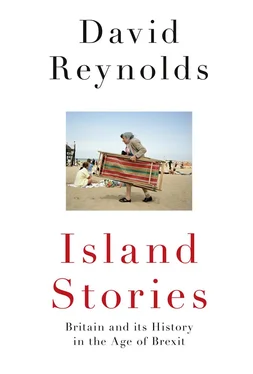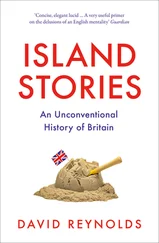Looking back now, the great British Empire seems like a bit of a con. How could so many be ruled for so long by so few? Admittedly, there were positive forces promoting acceptance of British imperial rule: the ties of ‘Britishness’ in the settler colonies, for instance, and the networks of clientage in India and elsewhere. But ultimately empire rests on force, or the threat of force, and for much of the Victorian era this could be exerted through superior British military technology. The Royal Navy may have faced growing European challengers, but it needed only a few steam-driven gunboats to overwhelm the Chinese junks and open up that country to European trade in the mid-nineteenth century. The British army may have been comical as far as Bismarck’s Europe was concerned, but it was quite sufficient to handle most threats on the imperial periphery. At the battle of Omdurman in 1898, General Horatio Kitchener’s army – including the young Winston Churchill – won control of the Sudan at the cost of only 368 men. His adversary, the Khalifa, lost 11,000: massacred by 3,500 shells and half a million bullets. In the pithy couplet of Hilaire Belloc:
Whatever happens we have got
The Maxim Gun, and they have not. [62] Конец ознакомительного фрагмента. Текст предоставлен ООО «ЛитРес». Прочитайте эту книгу целиком, купив полную легальную версию на ЛитРес. Безопасно оплатить книгу можно банковской картой Visa, MasterCard, Maestro, со счета мобильного телефона, с платежного терминала, в салоне МТС или Связной, через PayPal, WebMoney, Яндекс.Деньги, QIWI Кошелек, бонусными картами или другим удобным Вам способом.
Underpinning superior force was the potency of racial prestige – a point underlined by the colonial administrator Frederick Lugard. In Africa and India, he said in 1890, ‘the native looks on it as a sacrilege to touch a Sahib, and also expects little short of death from the Sahib if he should try conclusions. To this prestige the white man owes his ascendancy, and it must at any price be maintained, just as one would with a brute beast.’ [63] Конец ознакомительного фрагмента. Текст предоставлен ООО «ЛитРес». Прочитайте эту книгу целиком, купив полную легальную версию на ЛитРес. Безопасно оплатить книгу можно банковской картой Visa, MasterCard, Maestro, со счета мобильного телефона, с платежного терминала, в салоне МТС или Связной, через PayPal, WebMoney, Яндекс.Деньги, QIWI Кошелек, бонусными картами или другим удобным Вам способом.
Acute awareness of these ‘intangibles’ of prestige and credibility was voiced by Sir Alexander Cadogan of the Foreign Office during the Czech crisis with Germany in September 1938. ‘I know ’, he wrote in his diary, ‘we are in no position to fight: but I’d rather be beat than dishonoured. How can we look a foreigner in the face after this? How can we hold Egypt, India and the rest?’ [64] Конец ознакомительного фрагмента. Текст предоставлен ООО «ЛитРес». Прочитайте эту книгу целиком, купив полную легальную версию на ЛитРес. Безопасно оплатить книгу можно банковской картой Visa, MasterCard, Maestro, со счета мобильного телефона, с платежного терминала, в салоне МТС или Связной, через PayPal, WebMoney, Яндекс.Деньги, QIWI Кошелек, бонусными картами или другим удобным Вам способом.
In the nineteenth century, Britain struck out. In the twentieth century the empire struck back, especially in the era of the two world wars which opened up extensive opportunities for anti-colonial nationalists. In many British dependencies, new political organisations took shape, extracting concessions from the colonial authorities, which in turn gradually reduced their control over local policy and resources. The pattern of Dominion devolution was replicated, reluctantly, elsewhere – with the Indian case being especially important. Fiscal autonomy, conceded after serious disturbances in 1919, allowed the Indians to construct a tariff wall against British goods; this helped to ruin the Lancashire textile industry. When war began again in 1939, London agreed to pay for the extraordinary costs of using Indian troops; this resulted in a £1.3 billion British debt to India, equivalent to roughly one-fifth of Britain’s GDP. [65] Конец ознакомительного фрагмента. Текст предоставлен ООО «ЛитРес». Прочитайте эту книгу целиком, купив полную легальную версию на ЛитРес. Безопасно оплатить книгу можно банковской картой Visa, MasterCard, Maestro, со счета мобильного телефона, с платежного терминала, в салоне МТС или Связной, через PayPal, WebMoney, Яндекс.Деньги, QIWI Кошелек, бонусными картами или другим удобным Вам способом.
All this changed the cost-benefit analysis of holding on to India. At the same time the diffusion of military technology evened up the military imbalance between rulers and ruled. In 1946, for instance, less than half a century after Omdurman, a bunch of Jewish insurgents, using seven milk churns filled with TNT, blew up the King David Hotel in Jerusalem – the nerve-centre of British power in Palestine. Ninety-one perished, and with them much of Britain’s determination to hang on to its troubled Mandate. Ties with the white Dominions also weakened after 1945, as British migration tailed off; other ethnicities flowed in, and a keener sense of national identity was created. Australia led the way, but this was true even in New Zealand, previously the most ‘loyal’ of Dominions. In South Africa the bonds had always been weaker because of the dominance of the ex-Dutch Afrikaners, while in Canada the Francophone community and the neighbouring USA had long exerted their own countervailing pulls.
For Tories such as Margaret Thatcher and Jacob Rees-Mogg, Suez in 1956 was a crucial moment in Britain’s ‘decline’ – sapping the will to power – and also an episode that (in ways that that neither chose to specify) could have turned out differently. In reality, however, Suez – though making a big splash politically, especially within the Tory party – was ‘little more than an eddy in the fast-flowing stream of history’. [66] Конец ознакомительного фрагмента. Текст предоставлен ООО «ЛитРес». Прочитайте эту книгу целиком, купив полную легальную версию на ЛитРес. Безопасно оплатить книгу можно банковской картой Visa, MasterCard, Maestro, со счета мобильного телефона, с платежного терминала, в салоне МТС или Связной, через PayPal, WebMoney, Яндекс.Деньги, QIWI Кошелек, бонусными картами или другим удобным Вам способом.
Prime Minister Anthony Eden’s military operation to regain control of the Suez Canal was an act of desperation by a sick man, who was often running a temperature of 105 because of a botched operation on his gall bladder. He deliberately excluded most of Whitehall, including the Foreign Office, Treasury and Joint Intelligence Committee. It was also at odds with underlying post-war verities of British foreign policy. Collusion with Israel – supposedly covert but in fact embarrassingly transparent – ran against traditional British cooperation with the Arab states, while the failure to consult the United States, leading to a Washington-induced run on sterling, breached the basic post-war axiom of keeping in step with the Americans.
Читать дальше












